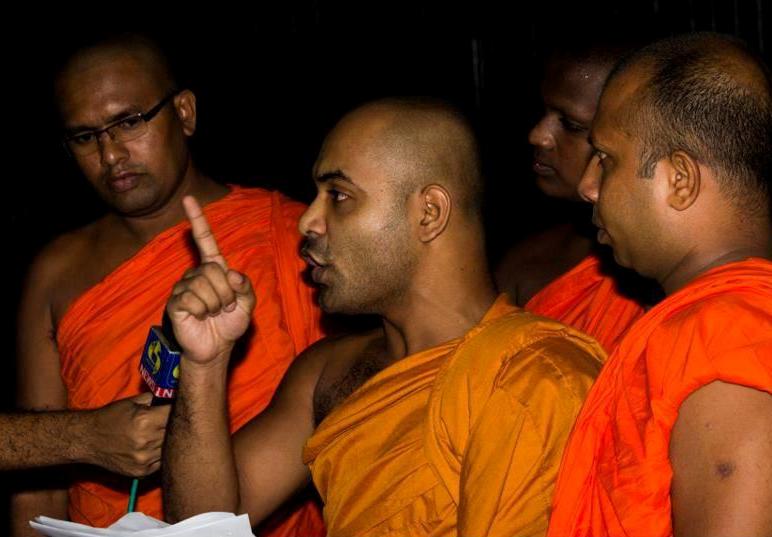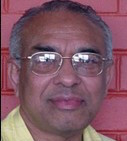The Sangha Needs Cleansing

 When religion is politicised religious leaders lose their spiritual charisma and religious institutions become partisan players among competing political forces. This has been the sad story of Buddhism and its apex institution, Sangha, ever since SWRD began to exploit that religion and its monks to win his political battles. By the time he realised that by dragging Buddhism and the Sangha into political arena he had become captive to the demands of Sangha-backed reactionary forces within his cabinet could not turn his back on them. The moment he tried to resist their pressure he paid with his life. Regrettably, his successors did not learn any lesson from this saga except to continue politicising Buddhism and the Buddhist clergy to achieve and retain political power. Even Colvin R. de Silva, a Trotskyite and author of the 1972 constitution, could not escape leaning towards religion although he regretted later. It was his constitution, which made Buddhism the state religion. From then onwards the Sangha became a permanent player in Sri Lankan party politics.
When religion is politicised religious leaders lose their spiritual charisma and religious institutions become partisan players among competing political forces. This has been the sad story of Buddhism and its apex institution, Sangha, ever since SWRD began to exploit that religion and its monks to win his political battles. By the time he realised that by dragging Buddhism and the Sangha into political arena he had become captive to the demands of Sangha-backed reactionary forces within his cabinet could not turn his back on them. The moment he tried to resist their pressure he paid with his life. Regrettably, his successors did not learn any lesson from this saga except to continue politicising Buddhism and the Buddhist clergy to achieve and retain political power. Even Colvin R. de Silva, a Trotskyite and author of the 1972 constitution, could not escape leaning towards religion although he regretted later. It was his constitution, which made Buddhism the state religion. From then onwards the Sangha became a permanent player in Sri Lankan party politics.
Once the top echelons of the hierocracy started tasting the joys of political influence and power, it became only a matter of time before the demonstration effect percolated downwards to infect the lower ranks. Young members of the Sangha, with less commitment to monastic life and mort attracted by worldly pleasures, actively entered into the political arena. Soon they appeared on party political platforms canvassing on behalf of contesting candidates. They, in their saffron robes, participated, led and directed unruly and violent political demonstrations as happened in Aluthgama in 2014 and Digana in 2018. Contravening all Buddhist canons, they even justified violence on nationalistic grounds. At least one or two of them have even entered the country’s legislature as peoples’ representatives. There is nothing to stop them in the near future from holding cabinet positions. They will at least have a legitimate claim over the Ministry of Buddha Sasana. Is this the legitimate world of the Sangha? While Prince Siddhartha renounced all palatial comforts and worldly pleasures to attain Enlightenment, why are some of his disciples renouncing the enlightened path and embracing worldly comforts?
Politics is the art of the possible. The rough and tumble of politics allows room for corruption, nepotism, deception and many other forms of unethical behaviour. The term honest politician is an oxymoron. Sri Lankan politics, like in neighbouring countries, is notoriously corrupt. What is the guarantee that members of the Sangha who enter politics will not succumb to these evils? If they give in to such temptations, what sort of an image they create about the Sangha among Buddhist worshippers both at home and abroad? In the current political and ethnic turmoil the behaviour of a few monks have seriously damaged the reputation of this vital institution. It is time that the Sangha devices some internal mechanism to cleanse itself of the rotten apples. The need is there, but who should do it?

